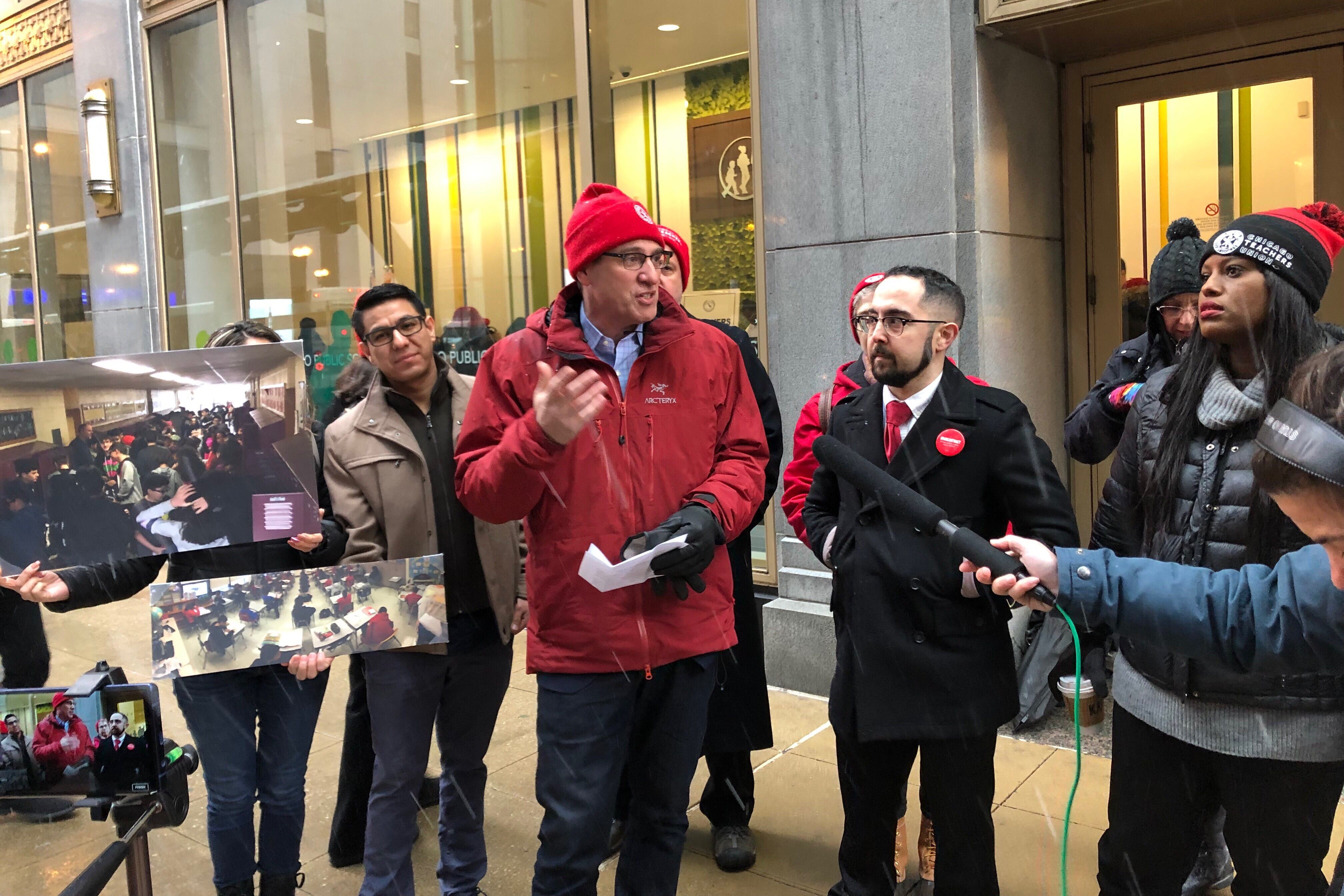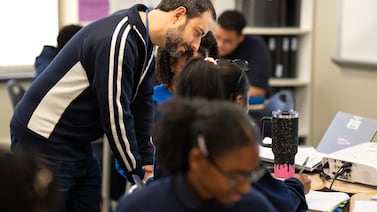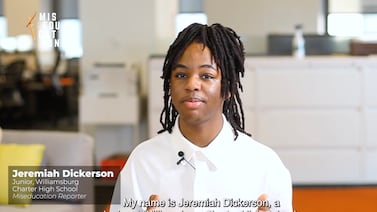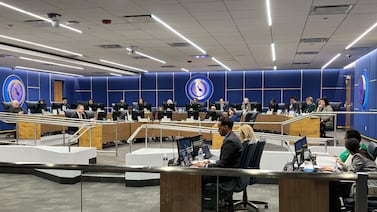A judge refused to grant a temporary restraining order in a lawsuit the Chicago Teachers Union filed against federal education officials and the district’s school board last month, saying that the case was “rife” with “legal deficiencies” and unlikely to succeed.
In the suit, the teachers union argued that special education policies during the coronavirus pandemic had created a crushing burden of paperwork for teachers already scrambling to serve students virtually. It took aim at a district requirement that educators craft remote learning plans for students with special needs by the school year’s end, which union President Jesse Sharkey called “onerous and unmeetable.”
The district sharply criticized the suit, insisting that those plans do not call for a wholesale rewriting of individualized education programs, the documents that spell out the services students with special needs are entitled to receive — they were just “basic accommodations” to continue serving students remotely.
In his opinion, U.S. District Court Judge John Kness said that the court was “sympathetic to the challenges inherent in providing remote special education and services.” But in declining to grant the restraining order, he sided with the defendants when they argued the matter is “fundamentally an employer-employee dispute.”
The union had called out U.S. Secretary of Education Betsy DeVos and her department for failing to recommend to Congress that school districts get the option to waive key parts of the federal special education law amid the pandemic’s disruption. Union leaders said the district had interpreted the law to mean educators and school-based teams had to rewrite special education plans for as many as 70,000 students. Teachers said that requirement, which included a formal conference with parents or guardians to get their input, made the task of serving students with special needs even more difficult.
In announcing the lawsuit last month, Chicago educators lamented a lack of clear direction from the district and federal officials about how they can shift learning online for some of the district’s most vulnerable students. The union has said that about 51,850 Chicago students have IEPs and about 20,000 other students have other special plans, which cover non-instructional accommodations such as those addressing food allergies.
After special education advocates filed a complaint in 2017 that Chicago systemically delayed or denied services to children with disabilities, the state school board placed the district under oversight.
The court order, issued late last week, notes that Congress had not specifically empowered DeVos to waive aspects of the federal special education law but rather simply invited her to submit recommendations for additional waivers during the pandemic. It also says the suit does not make a strong claim against the school board, in that it doesn’t show that it incorrectly or capriciously interpreted federal law in the case of the remote learning plans.






